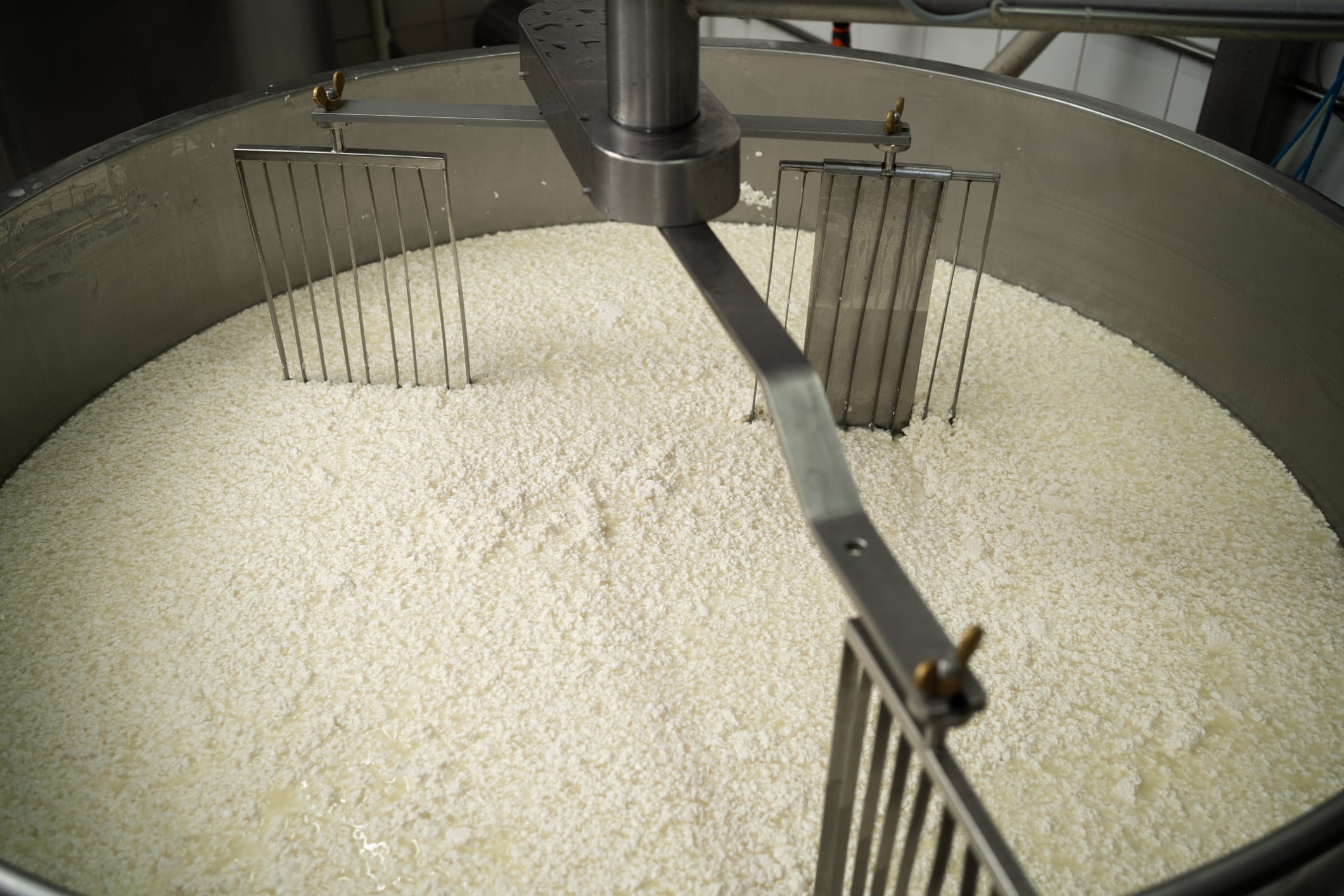Almost 50% of the whey produced by the cheese industry is discharged into water bodies, causing pollution and ecological imbalances. In Mexico, it is reported that in regions such as Veracruz and Chiapas, more than 100,000 liters of whey are dumped daily into rivers, altering their composition and affecting biodiversity.
Scientists from Tecnológico de Monterrey and the Technical University of Denmark (DTU) are using communities of yeasts and bacteria to transform this waste into high-value protein using an innovative precision fermentation process to break down the lactose in whey and transform it into protein-rich biomass. There is no genetic modification used in the process.
“The use of microbial communities is key in this process,” said Dr. Mario Antonio Torres Acosta of Tecnológico de Monterrey and lead for this project.
“In nature, microorganisms do not function in isolation but in consortia where they complement each other. We leverage this principle to optimize the conversion of waste into a product with high added value.”
Dr. Torres-Acosta told NutraIngredients that the research team has demonstrated that using mixed microbial communities results in increased protein yields compared to the use of single microorganisms.
Another key goal is to approach companies to demonstrate their capabilities and explore potential partnerships or collaborations to continue or extend or exploit this project, he said.
“We have observed that the production of alternative proteins is no longer an option but a necessity. We are facing an unprecedented climate and food security crisis, and developing sustainable protein sources will be key to feeding a growing population”
Dr. Mario Antonio Torres Acosta
Single-cell protein (SCP): Nutritious, sustainable and affordable
Dr. Torres-Acosta said that the main objective of Single-Cell Protein is to replace animal-based protein (i.e., meat), while the purpose of using whey is to reduce the amount of whey that is discarded to water bodies and prevent/reduce environmental problems.
He added that whey, by itself, is a very nutritious product, but the whey-based protein products for sports or muscle generation are not only whey but are whey protein plus other ingredients.
“The use of whey as a substrate for yeast fermentation generates a natural complete distribution of essential amino acids, minerals and vitamins that are not present naturally in whey,” he said.
The Single-Cell Protein nutritional profile varies depending on the different microorganisms used (Saccharomyces cerevisiae versus Kluyveromyces marxianus or Yarrowia lipolytica, for example).
“One of the key advantages of using SCP is that some microorganisms generate key vitamins, such as B12,” Dr. Torres-Acosta said. “Plant-based proteins lack B12, which is needed for human nutrition. Also, microorganisms like S. cerevisiae generate all essential amino acids. Lastly, depending on the substrate used, the microorganisms can generate different aromatic compounds that can improve organoleptic properties of final products.”
Benefits
According to the researchers, the single-cell protein (SCP) alternative offers multiple advantages compared to traditional protein sources:
- Superior nutrition: Being rich in essential amino acids, it can be highly digestible and have a biological value comparable to that of meat and milk.
- Lower environmental impact: Its production generates fewer carbon emissions and requires less water and land, especially when compared to traditional livestock farming.
- Competitive cost: While SCP could be produced for $1,600 per ton, its market price could range between $5,000 and $7,000 per ton, significantly lower than, for example, beef ($10,000 per ton).
- Good market acceptance: Unlike proteins derived from microalgae, which tend to have a strong flavor and an unappealing color, yeast-based SCP has a more neutral organoleptic profile, making it adaptable to different food applications preferred by new generations of consumers.
“The combination of biotechnology, computational modeling, and precision fermentation allows us to design an efficient, scalable and economically viable process for single-cell protein production.”
Dr. Alberto Santos Delgado, one of the researchers participating in the project and Director of the Informatics Platform at the Novo Nordisk Foundation Center for Biosustainability at the Technical University of Denmark (DTU)


